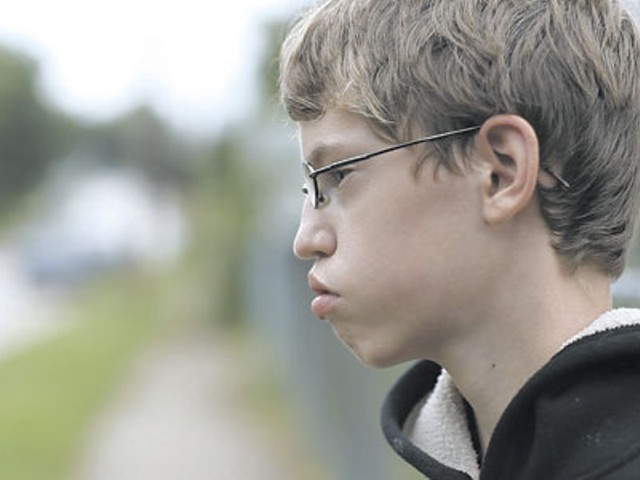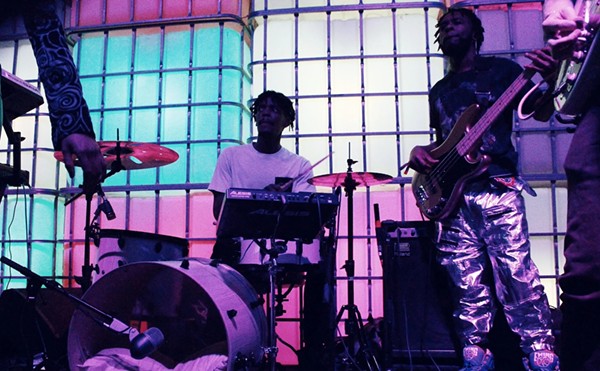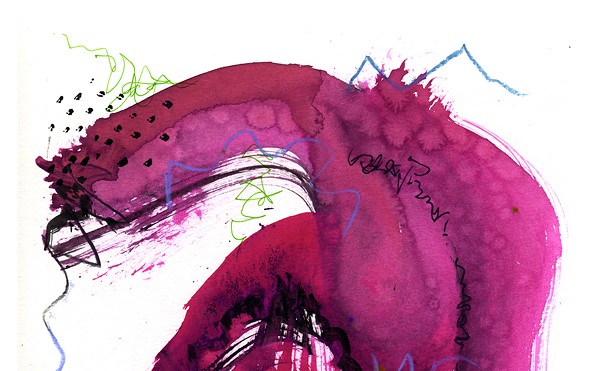Q: I’m a 37-year-old single father with a 14-year-old son. I’ve raised him on my own basically since birth, with help from some good friends and nearby family. Overall he’s a good kid: gets decent grades, rarely gets in trouble. Our relationship isn’t perfect — I work a lot and he’s a teenager, but no major issues. Over the past year, however, I have become increasingly convinced he is gay. I’ve found gay porn on his laptop (yes, I snoop; I pay the bill and I’m his dad), he’s shown ZERO interest in girls, and he has always been a tad effeminate, though I know that’s probably an unfair stereotype. I have no problem with gay people and I support full equality for same-sex couples. And truly, if my son is gay, while I won’t pretend it’d be no big deal and not require a bit of mental adjustment, I’d love him and support him fully.
My son has a friend, let’s call him “Gomer,” who comes over often. Sometimes they’re here when I’m not, and often they’re alone together with the door closed. If Gomer were a girl, these things wouldn’t be allowed. I’ve had the (straight) sex talk with my son, and he knows I don’t want him to be sexually active yet. But a friendship with a guy isn’t sexual … unless it is. I have no specific knowledge that anything has happened. Gomer is a nice kid, and I’ve met his parents. I have no problem with them hanging out. But if my son were gay, I would have a different, stricter set of rules regarding male friends. But how do I broach the subject? I’m swimming in unfamiliar waters with no life vest.
Dad Under Duress
A: “In an ideal world, Dad Under Duress would take a slow and roundabout way to encourage his son to come out to him,” says John Schwartz, a correspondent for The New York Times, a father of three, and the author of “Oddly Normal: One Family’s Struggle to Help Their Teenage Son Come to Terms with His Sexuality.” “Instead of a direct confrontation — are you gay or what? — DUD could make gay issues a part of the day’s general conversation. Discuss issues like same-sex marriage and stories in the newspaper that bring up LGBT themes. In that middle ground between pushing and ignoring, his son might decide that his dad is safe to come out to.”
Whenever possible, queer kids should be allowed to reveal their sexuality on their own timetable, Schwartz emphasizes, but there are times when a parent has to force the issue. For instance, if a not-yet-out gay kid is in crisis, or if a parent stumbles over evidence that a not-yet-out gay kid is doing something risky, a parent can and should go the “are you gay or what?” route. In your case, you already know your son is gay — “Browsers don’t lie,” says Schwartz — and the fact that your son might be having sex in his room, thereby breaking Dad’s house rules, may rise to the level of “are you gay or what?”
“If he’d tell a hetero boy to keep his door open, a gay boy should get the same message,” says Schwartz. “He’s not being the monster and he’s not being insensitive. He’s being the dad. He should keep in mind, though, that if his son is already having sex with his buddy, telling him he can’t do it at home is likely to send them off to places — to school, to a car — where getting caught could have bigger consequences than getting grounded.”
John Schwartz shared your letter with Joseph Schwartz, the gay son whose coming-out story John tells in “Oddly Normal.” Joseph thinks it’s time for a gay sex talk. “Gay kids need sex education more than straight ones,” Joseph tells his dad. While your son might have had sex education in school, even the best sex-ed classes focus on male-female. “There’s less reliable information about gay sex than there is about straight sex,” Joseph says, so gay kids turn to the Internet — or to porn — for information and, as Joseph points out, “half of it could be physically dangerous, and the rest is poorly explained.”
“If he’s lucky,” says Schwartz, “DUD lives near an LGBT center with a youth program, which will help his son find a community and also get a healthy dose of sex ed and risk reduction. If not, he could be in for an uncomfortable conversation or two. But the underlying message you’ll be sending is that you care, and that you’re the dad.”
“Oddly Normal” is a terrific book, and any parent with a queer kid should read it — and since any kid could be queer, that means every parent should read it. You can follow John Schwartz on Twitter @jswatz, and there’s a good interview with Joseph Schwartz at the Atlantic: tinyurl.com/oddlynormal.
Find the “Savage Lovecast” every Tuesday at thestranger.com/savage.





